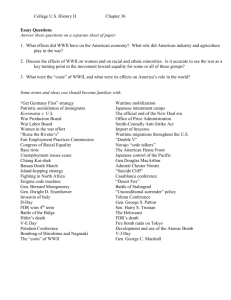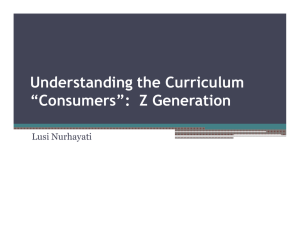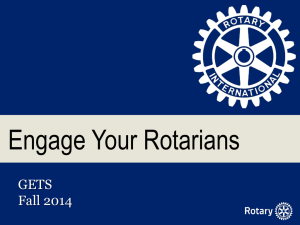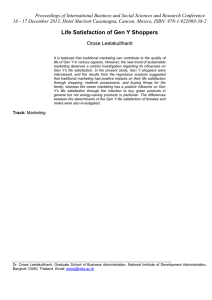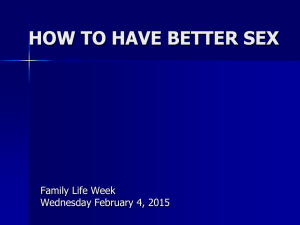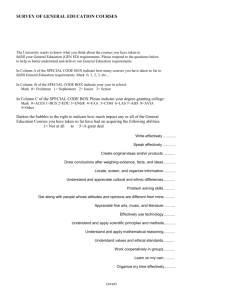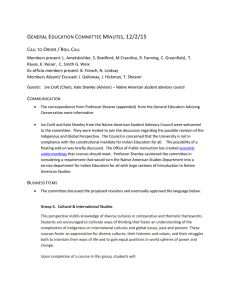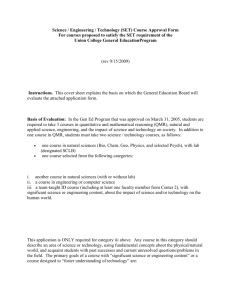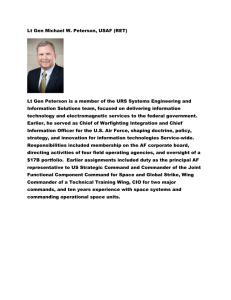AP Ch. 27-28 WW II assignment sheet
advertisement
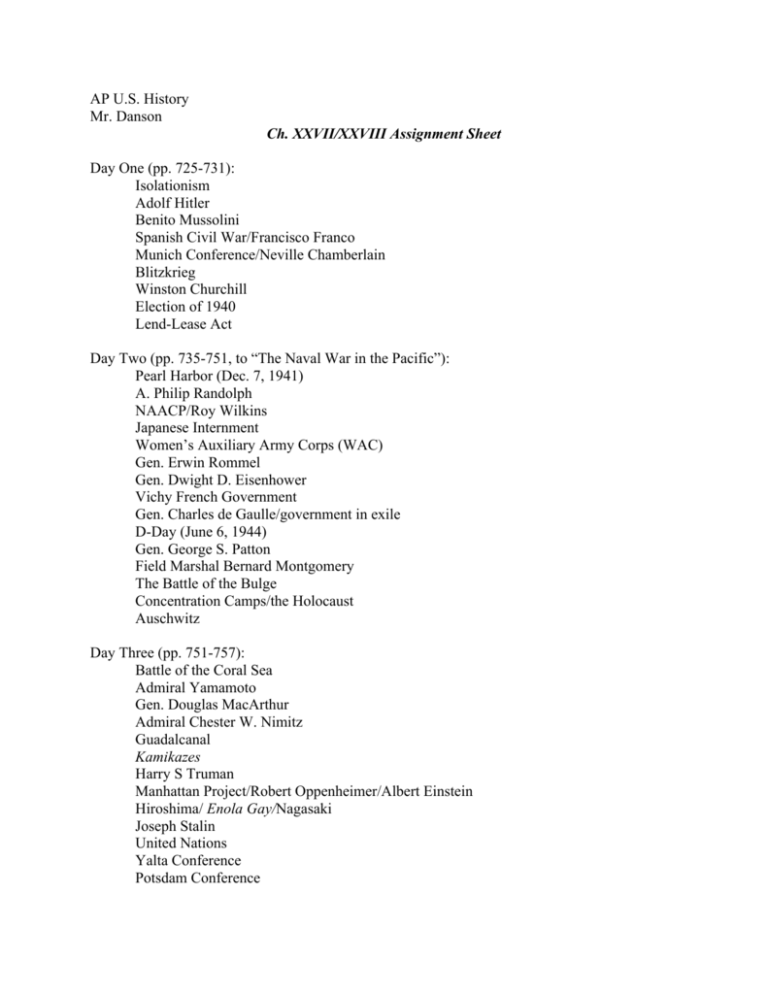
AP U.S. History Mr. Danson Ch. XXVII/XXVIII Assignment Sheet Day One (pp. 725-731): Isolationism Adolf Hitler Benito Mussolini Spanish Civil War/Francisco Franco Munich Conference/Neville Chamberlain Blitzkrieg Winston Churchill Election of 1940 Lend-Lease Act Day Two (pp. 735-751, to “The Naval War in the Pacific”): Pearl Harbor (Dec. 7, 1941) A. Philip Randolph NAACP/Roy Wilkins Japanese Internment Women’s Auxiliary Army Corps (WAC) Gen. Erwin Rommel Gen. Dwight D. Eisenhower Vichy French Government Gen. Charles de Gaulle/government in exile D-Day (June 6, 1944) Gen. George S. Patton Field Marshal Bernard Montgomery The Battle of the Bulge Concentration Camps/the Holocaust Auschwitz Day Three (pp. 751-757): Battle of the Coral Sea Admiral Yamamoto Gen. Douglas MacArthur Admiral Chester W. Nimitz Guadalcanal Kamikazes Harry S Truman Manhattan Project/Robert Oppenheimer/Albert Einstein Hiroshima/ Enola Gay/Nagasaki Joseph Stalin United Nations Yalta Conference Potsdam Conference Discussion Questions: 1. The text asserts that Roosevelt was “at heart an internationalist.” Many historians disagree; Robert A. Divine, in Roosevelt and World War II, for example, argues that Roosevelt was a sincere isolationist. What evidence supports that position? Which argument is more convincing? 2. Why were American citizens so unprepared for the conflict that emerged between the United States and the Soviet Union? 3. What long-term trends in American society were accelerated by the war? What impact were these changes likely to have on the future? 4. Evaluate the strategic role of the atomic bomb in bringing a conclusion to World War II. Were there other motives in play for Truman when he made the decision to use the bomb?

